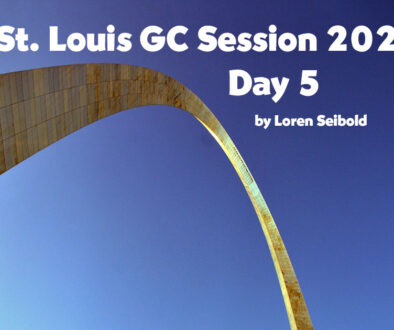A Biblical Perspective on the Migrant Crisis
By Bruce Campbell Moyer, December 29, 2016: As Jeremiah was the focus of a recent Sabbath School Quarterly, it may be useful to look at the present crisis in the Middle East, Africa and Europe through the lens of this prophet. I suggest that we do this through his letter to the exiled community in chapter 29. “But seek the welfare of the city where I have sent you into exile, and pray to Yahweh on its behalf, for in its welfare you will find your welfare” (verse 7).
This is a very specific application of God’s overall concern for what are often called the “marginalized” in our midst: the orphans, the widows, the poor and frequently homeless. It is echoed by other prophets. “Is not this the sort of fast that pleases me…Sharing your food with the hungry, and sheltering the homeless poor?” (Isa. 58:7,8). “Hate evil, love good; maintain justice in the courts. Encourage the oppressed, defend the cause of the fatherless, plead for the case of the widow” (Isa. 1:17). “Let justice flow like water, and uprightness like a never-failing stream” (Amos 5:24). And genuine Sabbath-keeping is linked to this care for the marginalized (Isa. 58:13,14)
Jesus referenced this concern in his inaugural sermon, recorded in Luke 4:1-20, and in his well-known description of the final judgment (Matt. 25:31-46), as did his brother James (James 2:1-17). “The spirit of the Lord is on me, for he has anointed me to bring good news to the afflicted. He has sent me to proclaim liberty to captives, sight to the blind, to let the oppressed go free. … In so far as you neglected to do this to one of the least of these, you neglected to do it for me. … If one of the brothers or one of the sisters is in need of clothes and has not enough to live on, and one of you says to them, ‘I wish you well; keep yourself warm and eat plenty, without giving them these bare necessities of life, then what good is that?’”
While the political atmosphere has changed, the people of Germany, and other European countries, have demonstrated this concern for the welfare of the hordes of refugees from Syria, Iraq and North Africa, handing out food, water and clothing to those flooding their railroad stations and country. This is a “prophetic” activity, in the truest sense of “prophetic” as speaking (and acting) on God’s behalf. And this is not likely to be a passing, temporary event. This is likely to be the new present, the most visible phase of the largest mass movement of people in human history.
The reality is that this is not simply altruistic activity. Jeremiah insists that it is only in their welfare that we will find our own welfare. There is no separate peace for ancient Israel or for us; no separate welfare. This is not a moment for causal reflection, to ask who is to blame. In some sense we all are; but that is history, and not of practical significance now. What is significant are weary, hungry, frightened, children and adults. While it is the work of (hopefully) God-directed politicians and world leaders to deal redemptively with the causes, it is our responsibility and privilege to deal with the human suffering on this massive scale. It is for us to feed, clothe, comfort, and house the suffering, remembering, for some of us, our own migrant and refugee ancestors.
I suggest that this is “prophetic” or “remnant” activity, not merely speaking/acting on God’s behalf, but also following the Lamb wherever he goes, into areas of suffering, pain and rejection.
I will venture a few modest proposals:
- That all local and union conferences in the denomination’s North American Division redirect all monies now set aside for public evangelism for the coming year, to the Adventist Development and Relief Agency in Europe ear-marked for refugee care.
- Send the top leaders of the denomination to Europe to visibly be involved in refugee care.
- Set aside one offering a month, for the next 12 months, for refugee resettlement, with appropriate promotion.
- In an act of repentance for our national devotion to consumerism, ask all Adventist families to skip three meals a week and donate the money saved to refugee resettlement.
- Consider how your congregation or school can mobilize local resources to orchestrate a Refugee Sabbath at your church that includes booths and foods and local resources as well as a worship presentation. All of this can bring local refugee/migrant realities to light and offer hope and healing. Alert the local media and invite local civic leaders, etc.
- Consider how your congregation or school can adopt, or better, host refugees. The United Nations High Commission on Refugees (UNHCR) can offer you guidelines, and the denomination’s North American Division has a coordinator for refugee and immigrant ministries who can connect you with resources. In both of the divisions in Europe, the ADRA office has resource people who assist with local refugee and migrant ministry.
- Consider how your congregation or school can write letters to editors, members of Congress or Parliament and denominational leaders, advocating for refugees.
- Consider how your congregation can promote or host a “Teach-in” on local and global Refugee/Migrant challenges, at a local college.
Then, perhaps, we will be “like a watered garden, like a flowing spring whose waters never run dry” (Isa. 58:11). This has nothing to do with evangelism. This has everything to do with evangelism!
Dr. Bruce Campbell Moyer is a retired professor of world mission in the Seventh-day Adventist Theological Seminary at Andrews University. Earlier he was a member of the international staff of the Adventist Development and Relief Agency (ADRA) and a pastor in Portland, Oregon, and Takoma Park, Maryland.
To comment on this post click here.




